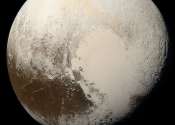Earth's anthropogenic carbon dioxide increase is unprecedented
A new measurement technology developed at the University of Bern provides unique insights into the climate of the past. Previous CO2 concentrations in the atmosphere could be reconstructed more accurately than ever before, ...









